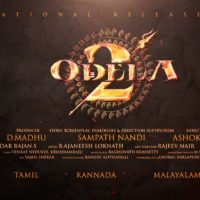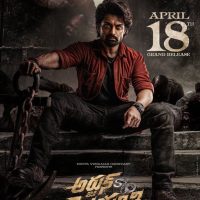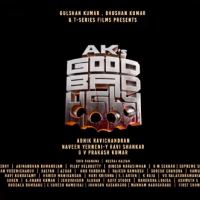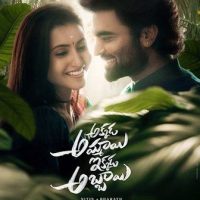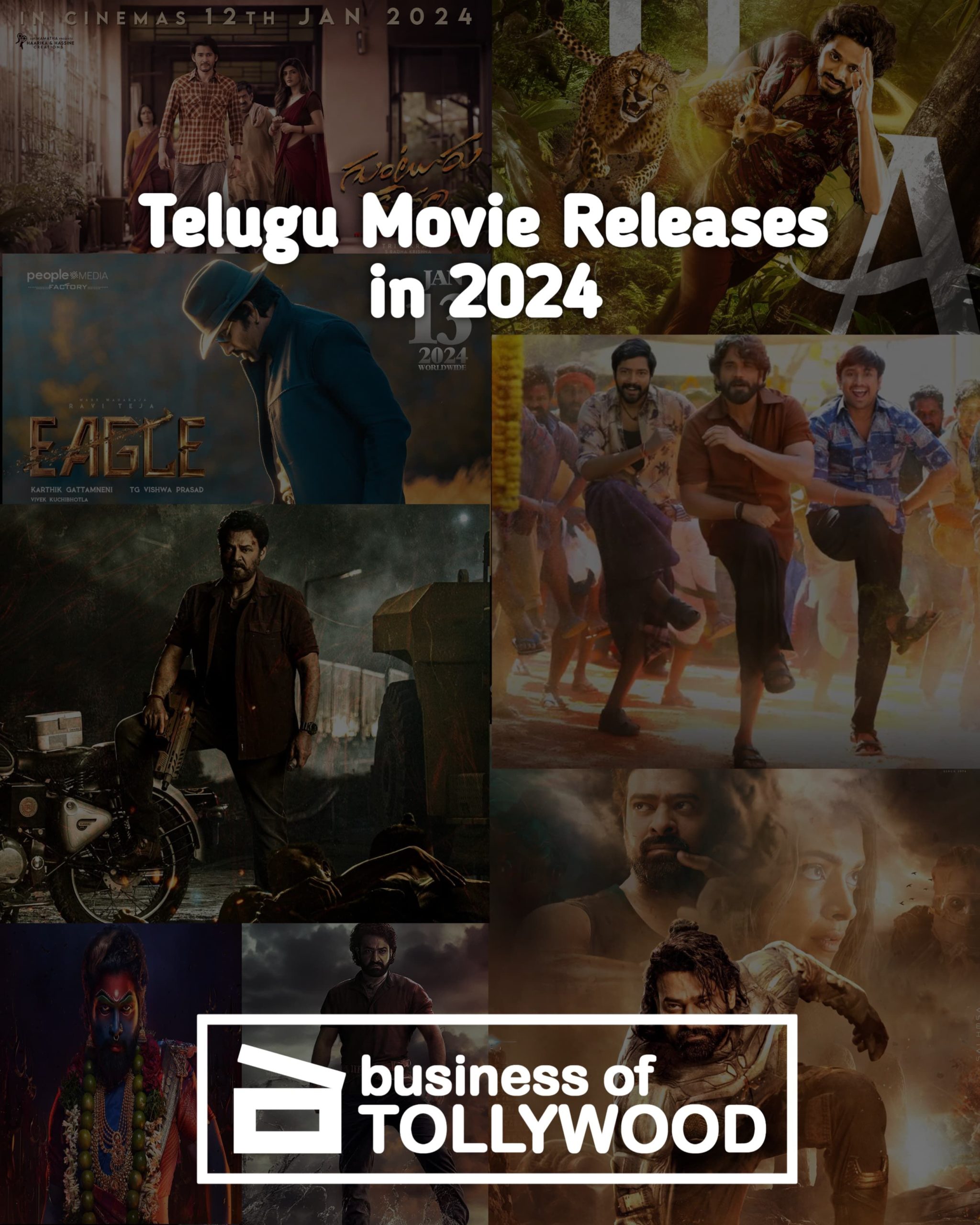
1.Tell us about your date of birth, place of birth and family background?
I was born on May 21st 1969 in Khammam. My father retired as Chief Engineer (Roads and Buildings) in 1979. I studied in Eluru, Nellore, Kurnool, Warangal and finally, Hyderabad! I am the youngest of six siblings, four elder sisters followed by my brother, Harimohan Paruvu, a novelist and former Ranji player, and then me.
2.Being an IIM alumnus, what drew you towards the film industry?
It happened in a chance meeting with Suresh Babu. I had a store called EERSHA on Road no.1 Banjara Hills. Suresh Babu came there for shooting and we stuck a friendship that day. I was fascinated with the way he talked of creativity being a process and an analytical approach to it. The task was even more challenging as compared to being a brand manager of a detergent or a soft drink. A film is a product where you just have a day that determines its success or failure. That challenge drew me into the industry. Suresh Babu is much smarter and intelligent than me. He is from University of Ann Arbor, He made me comfortable that I could do something concrete and not fail.
3.Tell us about your experience as a producer during the making of your first movie?
“Ashta Chamma” was my first film. It was a wonderful experience. I wanted Mohana Krishna to direct my first production. So I went to him and asked him to do it. He was a good friend always. It was such a joy working with him, a new cast and we were very daring and ready to experiment. I still remember we showed the entire film on a beta tape to Big FM station, without background score to get them excited! It was pure unadulterated fun!!
4.Evolution as a producer over these five years?
It’s the second movie that is a challenge as a producer. Parachuri Venkateswara Rao garu is from whom I learnt a lot of screenplay techniques while working with Suresh Productions. He warned me post Ashta Chamma to be careful with my second film. While Golconda High School was successful, I went over budget in that film. I should have listened to him! Growth or not I really don’t know. But I changed quite a bit post GHS. I needed to go back to where I operate best- budgeting and control.
5.Changing trends of the industry over the past five years?
Revenues have gone up dramatically. That is the biggest positive change. I am a bit concerned that family audiences have gone down as we are not making enough films for them. We are also losing out our space to Hollywood and Bollywood films. Competition is good and it should inspire our film makers to hold their ground.
6.Personal taste versus Professional requirement, how do you distinguish these two, during the selection of a movie?
There is no doubt that something has to connect. In Ashta Chamma, the thought that a while the girl only asked for a guy with a particular name was what I was hooked to. My sisters used to reject a lot of proposals because they didn’t like the name! Here was a girl character who stood up for what she wanted and I liked that when Mohana Krishna narrated. Golconda High School is more a tribute to mine and my brothers cricketing days (we are the only two brothers who captained their respective Universities, I believe) and the cricketers who make it and those who don’t. Uyyala Jampala is a connect because all of us have a bava or a maradallu who aspire to marry us but it just wont happen because we don’t say it or there is a class divide.
Coming to professional requirement, the personal taste is more a emotional connect and professionally, my job is to ensure the story telling is entertaining.
7.Do you look up to someone for advice in this industry?
D Suresh Babu always…I have established a good rapport with Nagarjuna garu in recent times. I also take advice from Gunnam Ganga Raju, Shyam Prasad Reddy, Actor Nani, Gemini Kiran, Sravanti Ravikishore, Dil Raju .
8.How important is it to associate with like minded people, be it technicians or business associates? What are the pros and the cons?
Like minded is most critical in all aspects. Like minded doesn’t mean love minded. Once you become too friendly, you can put the project at great risk because you want to be nice to a friend. On the other hand, you should respect technicians who are not like minded as well. They might fight with you, sulk, but they are just so passionate. Once you respect their intention, it all falls into place.
9.From a producer’s point of view, which technical know-how of film making are you most fascinated by?
I am fascinated by visualization of a director. I am good at correcting stories but I never worked in the direction team. I love watching Mohana Krishna and Virinchi direct. The way they want to capture a scene. I am too much in awe of directors.
10.How important is promotion for a movie? How do you rate its importance?
Film production is 40%. Balance 60% is promotion and distribution. Even for a big hero film, one should position a film carefully. The first look, the first poster, trailer, etc. We should always remember that we are catering to an audience that runs into lakhs and crores.
11.What are the promotional activities you take up for your movies? Is re-inventing the promotion wheel very important from movie to movie?
Publicity is a science in the Film Industry. It is a set norm be it Hollywood or here. You just have to follow the established system and try to innovate within that. You need not re-invent the wheel.
12.What is your opinion of audio functions? Do they leverage the value of mid-size budgeted movies?
They do. For the first time, we did a live audio function. TV has humungous reach and builds curiosity. It is also a set pattern which audiences are used to- that a film is coming soon for release. The audio function gives them a glimpse of the film, the stars, the trailers, the feel of the music, etc.
13.Did the inclusion of marketing/business acumen of Mr.Nagarjuna Akkineni help in the production and promotion of the movie? If Yes, how?
Definitely, yes. He is a man who believed in getting what he wanted. Whether it is working with Ram Gopal Varma or Mani Rathnam. A true self driven individual. When he first heard the story, he said make it with new comers. When we discussed how best to finance the film, he brought in partners. He took the final call (after seeing the film) that this film should be released by D Suresh Babu all over and not sold in any territory. And of course, when he believes in something, he stands up for it. When we look at the publicity for Uyyala Jampala, you can notice how much he did for this small film.
14.What is the risk percentage of the investment a producer should be ready to take?
When I joined the business, Rama Naidu garu called me one day and said “However smart you and my son Suresh are, please remember always this film business is always 50:50”. That is the biggest lesson I learnt. Ideally, one should look to cover cost of production to reduce risk. Or take in partners who love the script and spread out the risk.
15.Did your investment model change from your first to the current movie? What were the mistakes or lessons you have learnt and how did you manage to implement in subsequent productions?
First and second film, I was partners with my childhood friend, Dinesh Kumar. Ashta Chamma we went all in by ourselves. GHS was a bigger budget and Suresh Babu joined us. All of us three lost money in GHS and that made me guilty and to revisit my own thinking. A batch mate from IIMA, Prabhat Agarwal, stepped into my life and restructured me completely. We floated a new company, raised money, joined hands with Annapurna Studios, signed up with Suresh Movies for a rolling distribution advance, etc. For the first time, I can be proud to say I finally used my MBA to get myself disciplined and systems driven. All thanks to Prabhat and shareholders! Sunshine Cinemas is a broad based shareholder driven company and all the systems will stay and get stronger. Yes, we did a couple of mistakes. More in terms of shot division and lack of planning. I was eating away Virinchi’s time in the night discussing dialogues and he had no time to prepare. We will not repeat the same mistake going forward.
16.You have introduced many artists to the industry, who is the most promising one according to you? What do you see as their USP for them to tick?
Unfair to comment on any of them. Each has their USP. Nani is a mass entertainer. Raj Tarun is a natural performer. Srini is great with his timing. Swathi is a true actress. Avika is charming and emotionally connects well to all audiences.
17.Tell us about the movie Uyyala Jampala and how did you take up this project?
During GHS time, Virinchi Varma narrated the story. Virinchi claims I slept during narration.The truth is he took me into a trance completely, that’s what actually happened. So simple so genuine, it was like mountain air. I chose the idea just because of one scene when the girl and boy are driving back from the temple. Watch the film and the emotion at the end of the scene bowled me over.
18.Ashta Chamma was released in 2008 and now Uyyala Jampala is getting released 2013. You were five years younger during the making of AC and relatively worked with mid 20’s or late 20’s age –group actors and now after five years experience in production, you have hired teenagers for Uyyala Jampala. How do you see the actor-producer relationship changing over the course of these five years? Is it any different working with teenagers and any other age groups?
Teenagers don’t care about being nice. They are honest and unpolluted. They have discipline issues but that’s a lesser evil. I remember every time Virinchi and me would re-write a scene (Raj Tarun was a writer then) and narrate to Raj Tarun, he would say “Bagundi….Kaani” (Its nice, but…). It is so frustrating to keep them happy. I keep telling my wife that our family just got larger. They are a part of my life now. Raj Tarun, Nani Bandireddi, Praveen Kumar, Naveen Nayak… The other good thing about them is they do short films so they know everything and a lot more than me too!!
19.Mention about any memorable moment during the shooting of Uyyala Jampala?
I hardly would talk to Avika. My conversations were mostly with her Dad, Sameer. The day we were shooting the scene on the terrace, she walked up to me and said “Sir, I know this is the scene you love the most. Please be on location tonight. I want you to see me perform”. That’s when I realized how much this 16 year old was into the film.
20.Tell us about the cast and crew of Uyyala Jampala?
I will talk about each one:
Supriya Yarlagadda: The invisible hand, friend, philosopher and guide.
S Ravinder , Art Director: Never took money. Said “Sir you lost in GHS. You first make money”
Viswa, Cinematographer: Extremely passionate. Will fight and sulk but get his way.
Virinchi Varma, Director: Amazing grace, sensibility and stable
Venkatesh Marthand, Editor: Always there to help new comers
Prasad NSVG, Executive Producer: My alter ego. He runs the show completely.
Geetha Golla, costumes and casting: Objective to the core. You cannot get away with any recommendation.
Sunny M.R.: Like his music, he grows on you and stays forever in your heart.
Unit Members: Loyal, wanting me to do well in this film, cared more about output than their personal needs and money
Raj Tarun: A star not because he wants to be. Because he is blessed to be.
Avika Gor: Dedicated. Disciplined. Professional. Charming and Innocent.
Punarnavi: Knows her craft and role. Very mature for her age.
Anita Chowdhary: A believer knowing that she carries the burden of being the familiar face to audiences.
Ravi Varma: Passionate and determined to show his talent
Finally, I have to mention KK Senthil Kumar. He just walked into Annapurna DI, checked the color corrections, made some suggestions which were implemented. He told the DI guys and Viswa “Ram’s film is my film”.
21.Who were the distributors for your previous movies?
Always Suresh Babu. The reason to go for full distribution is that I don’t want anyone to lose money on my account. I am not greedy for profits but I don’t want anyone to suffer because they bought what I believed in. However, if someone wants to see the film and take the risk, I am more than ready of course.
22.Usually how many days will each movie take for completion?
I prefer a maximum of 50 days. Bollywood is doing star films in 45 days. We can do it too.
23.What was the major difference between the styles of working of your Ashta Chamma director and Uyyala Jampala director?
Mohana Krishna is communicative. He is like a mentor to young actors. He is fast paced and quick on the feet. Virinchi is a poet. The visual is in his head and he will wait till the actor delivers or sees the visual. Both are like minded and obsessed about story telling.
24.Who are your favorite director, actor and actress?
K Viswanath as a director, George Clooney the actor and Julia Roberts as actress.
25.What is your favorite movie in Telugu over the past decade?
“Arya” by Sukumar.
26.Do you have any dream project?
Yes, to make a film like “Basha” one day.
27.Tell us about your upcoming projects?
Nothing as yet. I want to see that UJ reaches out to as many people theatrically.
28.What are the few fundamental rules a person should possess to succeed at this level?
Patience. Suppressing ego. Seek help when you need it. Realizing that it’s like cricket and you are only as good as your team.
29.How do you deal with disappointments and what is the mantra to keep moving forward?
Be disappointed only when you know you screwed it up. Don’t blame anyone but yourself. Don’t transfer the guilt to others. To move forward, admit that you screwed up and won’t do it again. Don’t let fear of failure obsess you. A film can be fixed at any stage. It can change drastically at the editing table as well. A film is your child. Handle it like one. Guide it instead of being scared of it.
Sl.no.INT/43

